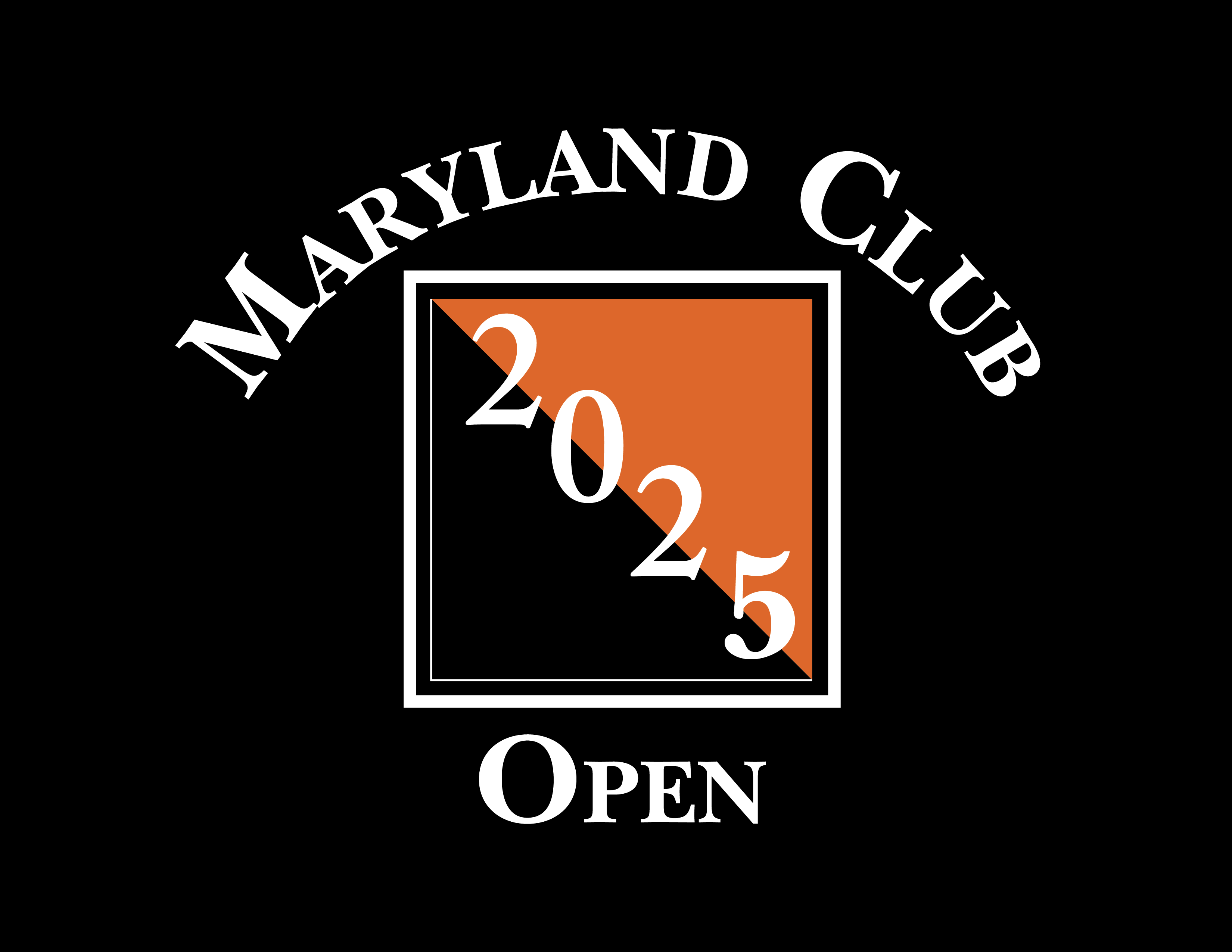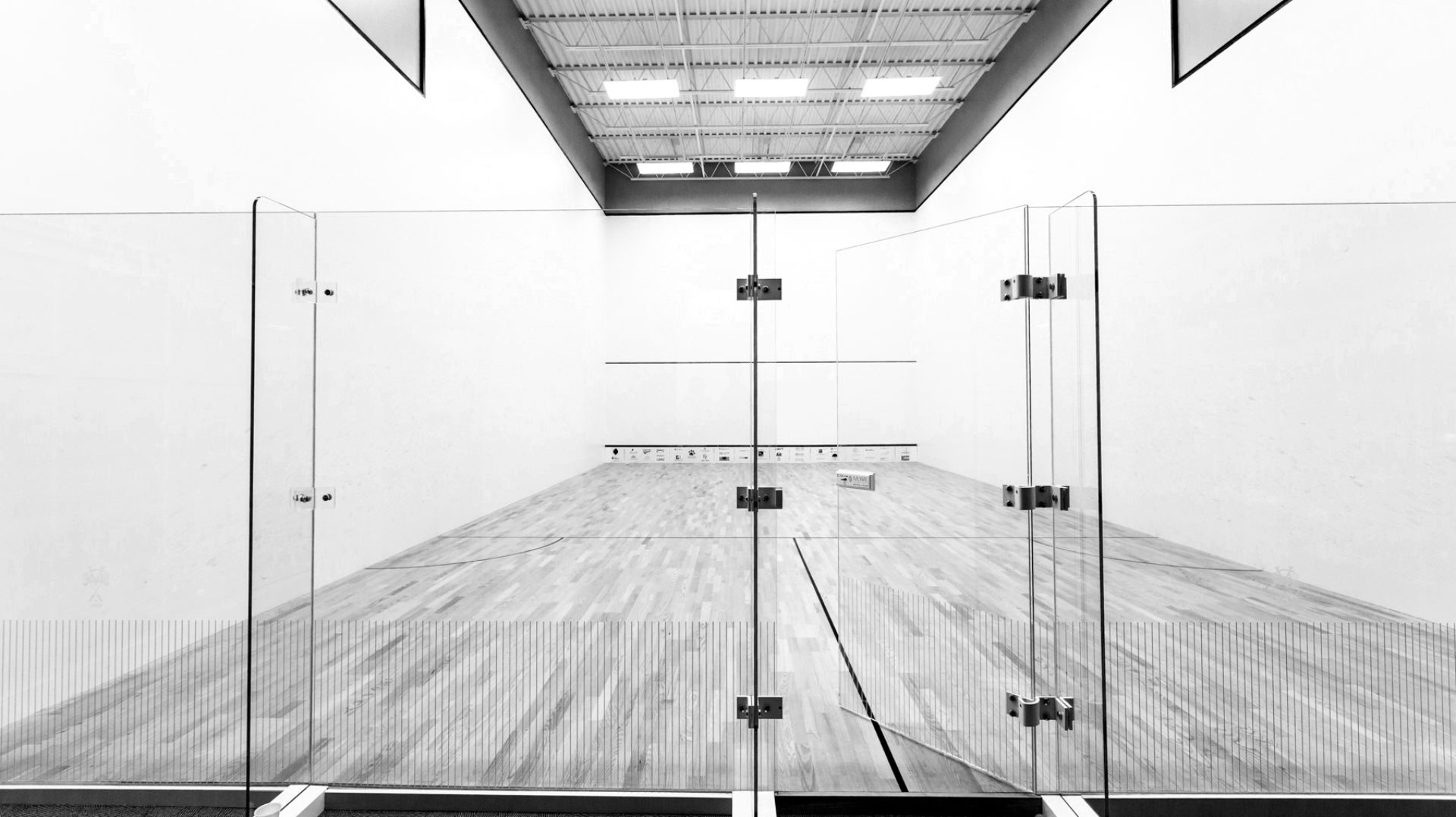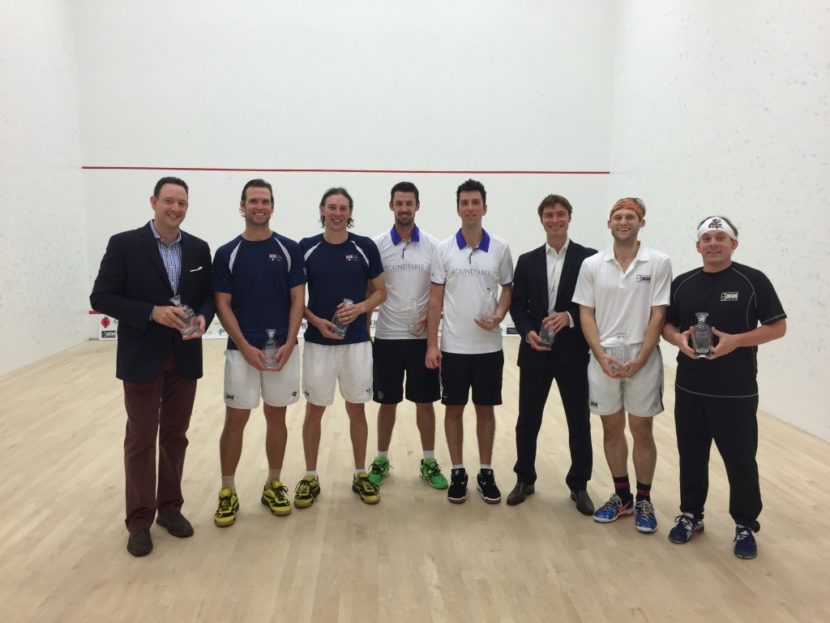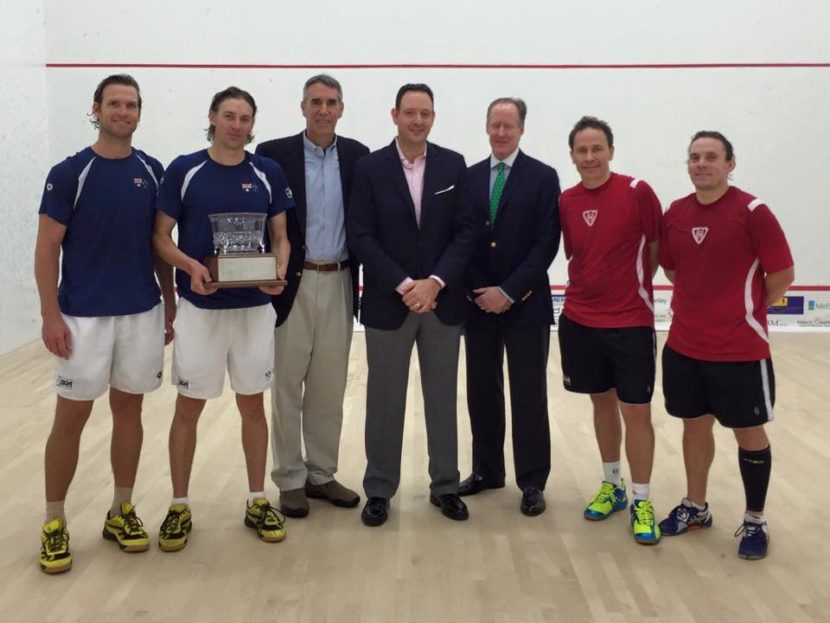Brand-New Top-Tier Partnerships To Make Their Debut In 2016 Maryland Club Open – By Rob Dinerman
Of all the venues that have established themselves on the North American professional doubles tour during the past nearly two decades of its existence, the Maryland Club Open (MCO), which began in 2003 and is now entering its 13th edition (there was a one-year hiatus in 2009 in deference to Baltimore hosting the U. S. National Doubles that season) has delivered by far the most significant innovations, memorable results and player-friendly services. The confluence of its early-autumn positioning on the SDA calendar, extraordinary facilities, enthusiastic membership participation and support, and the dedication and business acumen of head pro Andrew Cordova, has made the Maryland Club one of the most popular tour stops of the entire season and a deserving recipient last October of the SDA’s inaugural Event Of The Year Award to the site “that has made a significant contribution to the tour and its players.”
Cordova, who founded this event and has served as Tournament Director throughout its existence, was ranked as high as No. 18 in 2007 and was the tour’s Director of Development from 2012-14, following which he earned a Masters of Science degree in Recreation & Sports Administration, with a concentration in Facility and Event Management, in an online program offered by Western Kentucky University. He has always looked to expand the MCO’s scope, and has done so from one year to the next on multiple fronts, ranging from a partnership in 2008 with SquashWise, Baltimore’s at-the-time nascent urban squash program, which created further incentive for the members to support the tournament and led to a substantial donation to that inner-city youth-enrichment organization; to the holding of a Legends of Squash singles tournament in 2010, the initial event of the U. S. leg of the global Legends of Squash tour that had been co-founded earlier in the year by Peter Nicol and John Nimick, featuring six elite PSA performers from the recent past (namely British Open champions Jonathon Power, David Evans and Nicol, the eventual winner, along with former PSA No. 1 John White and top-four ranked Martin Heath and Simon Parke),who unexpectedly found themselves so immersed in the doubles that they wound up spending most of their time in the doubles gallery and one of them almost missed his flight home to Europe (!) and resulting in most of them competing in the pro-am doubles when they returned for the Legends portion of the MCO the following year; to a level of hospitality extended to the players throughout their stay in Charm City that is unequaled by any stop on the professional doubles circuit. The MCO was for years the only event to pay teams that lost in the last round of the qualifying draw, it is one of a very few SDA events that completely covers the hotel-room expenses of every participating player, whether main-draw or qualifier, and since its inception a dozen years ago, it has fully covered the food and beverage expenses incurred by all players throughout their time at the Maryland Club during the tournament weekend. The MCO, which for the second straight year will be hosting the Awards ceremony for the 2015-16 season, is also the only tournament on the pro doubles tour to have published a Tournament Program every year that it has been held, and this tournament has by this juncture acquired the well-earned reputation for starting every new season off with a bang.
That will assuredly be the case this coming weekend as well since, for the first time in the history of the Association, no fewer than six of the top-eight-ranked players will be teaming up for the first time ever with his partner, and one of the two exceptions, No. 1 ranked Ben Gould, winner of this title for each of the past six years with Damien Mudge, recently retired. This means that of the seven top-ranked entered players only John Russell, a four-time Maryland Club Open finalist (in 2006, 2008 and 2010 with Preston Quick and in 2015 with Clive Leach) who again is teaming with Leach, is not part of a debuting team. The first time match-ups are Mudge (a record nine-time MCO champ, the last six with Gould and from 2003-05 with Gary Waite) and Manek Mathur, the Nos. 2 and 3 ranked players respectively; No. 4 Yvain Badan and his former Trinity College teammate No. 7 Michael Ferreira; No. 5 Viktor Berg, who won three tournaments and reached three more finals with Mudge during the second half of last season, and Raj Nanda; and No. 8 Chris Callis, winner of the 2015 Most Improved Player Award, and Jonny Smith.
Of this quartet of brand-new alignments, perhaps the most intriguing is that of Mudge, the tour’s “all-time leading scorer” with more than 150 ranking tournament wins in his ledger, who will move back to the right wall after spending the past nine years on the left, and Mathur, who this weekend will receive both the 2016 Player Of The Year Award and the Team Of The Year Award that he co- won with his partner throughout most of the past six years, the aforementioned Badan. After years of runner-up finishes behind Mudge and Gould, Mathur and Badan finally became the tour’s dominant team during the calendar 2016 portion of last season in the wake of Gould’s December 2015 retirement by winning the Boston event, the North American Open in Greenwich and the Baltimore Open during one seven-week January/February stretch. Two of these titles were earned at the final-round expense of Mudge and Berg, whom Mathur and a briefly-un-retiring Gould also defeated in five riveting games in the final full-ranking tournament in Cleveland this past April.
Ferreira, Badan’s new partner and one of 11 Trinity College alumni among the tour’s top 31 players, was heavily involved in a slew of matches this past season that came down to simultaneous-match-ball, with several players being on both ends of the outcome on multiple occasions. He and Callis lost by this margin on consecutive early-December weekends, first at Wilmington, when Ferreira tinned an open ball against Bernardo Samper and Antonio Diaz, and then in a Briggs Cup quarterfinal against Mathur and Badan. Undaunted by those agonizing near-misses, Ferreira and Callis beat Quick and Matt Jenson (simultaneous-match-ball winners one round earlier after trailing Mathur and Badan 12-3!), 15-14 in the fourth, in the Heights Casino semis, leading into a frenetic first three weekends of March that began with Freddie Reid Jr. and his Canadian compatriot Thomas Brinkman winning the U. S. National Doubles final, 15-14 in the fifth, against Preston Quick and Graham Bassett, on a Brinkman cross-court past Bassett, and continued with yet ANOTHER simultaneous-championship-point conclusion just seven days later at the Hashim Khan Open. The host venue for this latter tournament, the Denver Athletic Club, was the squash stomping ground for the Quick siblings, Meredeth and Preston, both of whom earned their way into their respective finals.
Meredeth Quick and Tarsh McElhinny prevailed over Suzie Pierrepont and Tina Rix in the WSDA pro women’s final, but in the men’s, the hope for a Quick family “double” was dashed, albeit barely, when Preston Quick and partner Jenson came up just short against Jacques Swanepoel and Ferreira, who blasted a backhand cross-court winner to perfect width at 14-all. Never before had consecutive-week doubles tournaments of this dimension both culminated with a simultaneous-championship-ball, and had that last point in Colorado instead landed in the Quick/Jenson column, it would have made for a storybook career ending for Preston Quick, the SDA Director of Development, who announced his retirement during the trophy presentation. One week later at the Germantown Cricket Club in suburban Philadelphia, Ferreira notched his second SDA title in as many weeks when he and Callis won in five games against Swanepoel (who in February had won the Pittsburgh Challenger tourney with Jenson) and James Stout.
Berg, the only player to have won multiple tournaments on each wall during the past two years (he played the left wall in partnering Hamed Anvari to both the 2015 St Louis Open and the Challenger tournament that year in Germantown, then switched to the right when he and Mudge joined forces midway through last season), will move back to the left to team up with Nanda, and Callis, who in addition to his run in Germantown last March with Ferreira reached the Big Apple Open final with Mathur in November, should be a good fit with the decorated veteran (and 2013 World Doubles finalist with Leach) Jonny Smith.
While the real-time attempts of all of these talent-heavy new pairings to create instant chemistry will no doubt make for fascinating viewing from the Maryland Club galleries (as should charting the post-MCO adjustments they make as the season moves along), it should not be forgotten that intact partnerships like Scott Arnold and Robin Clark, whose several-year ascent has now landed them in the top-10, and oldies-but-goodies Leach (who missed the latter part of last season after undergoing mid-March knee surgery) and Russell could have a major impact on the 2016-17 season as well. There is always a furious free-for-all as a new pecking order is established at the outset of each season, even more so this year in light of all the new partnerships that formed over the course of this past summer, and, if history is any guide, what happens this weekend during the Maryland Club Open is likely to set the stage for everything that follows.
Rob Dinerman, now entering his 17th season on the pro doubles tour, has written the centerpiece article for every Maryland Club Open Tournament Program in the history of this tournament. His hardcover book “A History Of Harvard Squash, 1922-2010” was published by Millennium this past October and Volume II of “Selected Squash Writings”, a squash anthology, was recently listed onAmazon.com.




